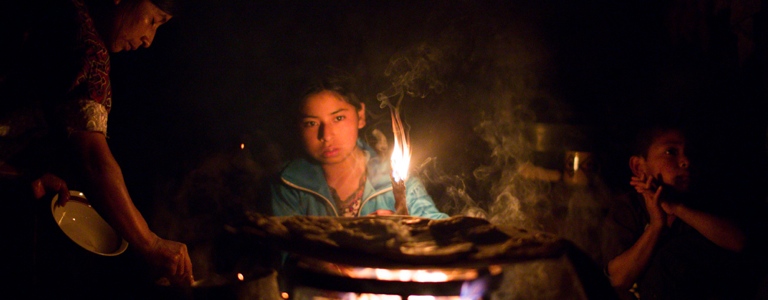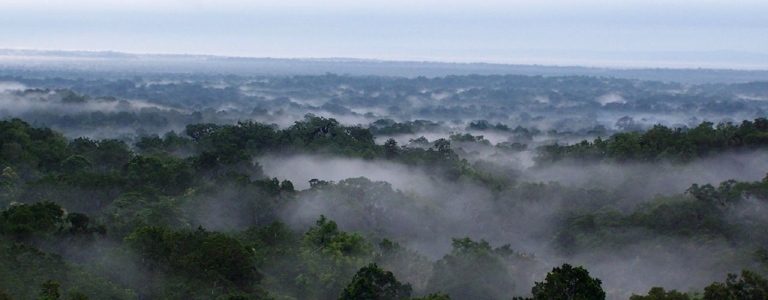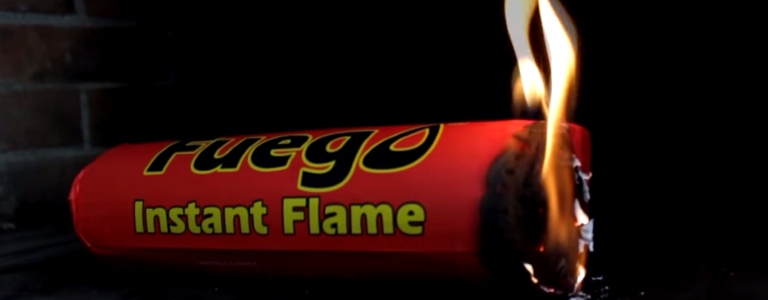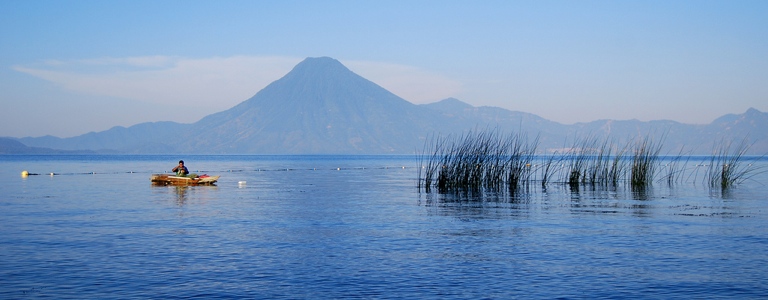Mr. Fuego, Guatemala
When Ken Lou Castillo was a child and attended outdoor family events that included the use of fire (such as camping or outdoor cooking), he soon found that he was allergic to firewood smoke. Itching, coughing, breathing difficulties, and severe red and swollen eyes left him unable to take part in these activities. However, the young boy was determined not to let his allergy keep him away from these important events. When he was only 9 years old, Mr. Castillo developed an environmentally friendly type of artificial firewood (known as a fire log) that yields white smoke when burned, instead of the allergy-inducing black smoke to which he was more accustomed.

Even though he was just a child, Mr. Castillo realized the potential commercialization of his product, the environmental and health benefits, and the important role of the intellectual property (IP) system. After becoming the youngest person to register a trademark in his home country of the Republic of Guatemala (Guatemala) in 2005, over the ensuing years Mr. Castillo perfected his innovation and brand, eventually starting his own family-run small and medium-sized enterprise (SME). By 2014, he was enjoying success and developing new products.
Research and development
A 2003 study on fuel use in Guatemala found that over 80 percent of people use firewood for cooking and other activities in the country, and in many instances these occur outdoors (World Bank/ESMAP, 2003). Having an allergy to firewood smoke could make it difficult to participate in family activities that involve using firewood, even if it is outside. This is the problem that Mr. Castillo faced when he discovered he was allergic to smoke when he was 9 years old, which was disappointing for him because he treasured these family moments. Not wanting to let firewood smoke keep him away, the young entrepreneur went to work on finding a solution.
While thinking about the problem, Mr. Castillo came up with an idea of developing a new product that would not give off the black smoke that he is allergic to when burned. He just had to find out what type of ingredients could be used that would give the desired result. Over a period of many weeks and with the help of his father, Mr. Castillo burned and tested various combinations of different types of materials, including paper and treated wood. If he sneezed when he approached the smoke, he and his father would move on to trying something else. One day they burnt sawdust, which is wood processing waste, and Mr. Castillo didn’t sneeze. Using sawdust as a base, he came up with a mixture of other ingredients that would yield a smoke white in color and to which he was not allergic. Continuing his testing, the young entrepreneur developed a formula of ingredients and a process for compressing it into an artificial log.

The set of ingredients that he used includes a mixture of paraffin wax (a byproduct of gasoline production), sawdust, wood shavings, and other agro waste. When the mixture was burned for the first time, a white smoke (which is a result of the mixture’s composition) was produced that did not irritate Mr. Castillo’s allergy. This was a welcome relief for the 9-year old boy, as it meant he could once again participate in family events. He soon realized, however, that his development could be taken further. As he explained during an interview with the news agency Efe, “I had an idea and I carried it out. Later it turned into something that would help other people, not just me.”
What Mr. Castillo turned his creation into was Mr. Fuego (Mr. Fire), which is a brand of artificial, cylindrical fire logs that can burn for up to two hours. To make the log, the ingredients are compressed together by a cylindrical hand-operated press. The completed logs are then put into paper packaging adorned with the Mr. Fuego name and logo. The packaging has folded ends that serve as the points where the log is lit with a match, lighter, or other flame. As the packaging burns, the log inside catches fire.
The nature of the Mr. Fuego fire log brings with it many advantages (according to the company). For example, after it is completely burned it only leaves a small amount of ash and no pollutants or harmful residue. It has an indefinite shelf life and can be stored in enclosed spaces, poorly ventilated areas, or exposed to the sun without any flammable risk or product quality degradation. The package serving as the lighting point allows the log to be lit nearly instantaneously, and because it is made of easily accessible materials it is very economical.

Trademarks and domain names
Deciding to commercialize his product, Mr. Castillo recognized early on the importance of utilizing the IP system. In order to build brand awareness for Mr. Fuego, the young entrepreneur decided that the best way to do this was to protect the product’s name. To that end, in 2005 he made a trademark application for Mr. Fuego with the Register of Intellectual Property of the Ministry of Economic Affairs of the government of Guatemala. The trademark was registered (No. 2005-03672) that same year, and Mr. Castillo became the youngest person to ever receive a trademark registration in the country. As the popularity of the Mr. Fuego brand increased, on a number of occasions unscrupulous individuals tried to trick the young innovator into giving up the brand name. Mr. Castillo’s trademark registration has proven to be vital in protecting his brand from such potential infringers and to the growth of the Mr. Fuego product line.
Use of the Internet has been an important means for the young entrepreneur to disseminate information about, and commercialize, his product. To that end, Mr. Castillo owns the mrfuego.com domain name, through which his product is explained and customers can place orders for Mr. Fuego fire logs. His many appearances on television shows can also be seen on the popular video sharing website YouTube, which helps to further promote the Mr. Fuego brand.
Commercialization
In the interview with Efe, Mr. Castillo expressed his concern about the environmental and public health impact of continued deforestation and firewood dependence in Guatemala. With a product and trademark registration in hand, his successful commercialization of Mr. Fuego plays a small part to address these concerns. In addition to the Mr. Fuego fire log, he has developed Mr. Fuego Fire Starter, which is based on similar ingredients but comes in a much smaller package. This product is used to quickly and safely light charcoal and other burning materials. Both of these products are manufactured at the entrepreneur’s family home, which serves as the headquarters for the family-run SME, complete with production and packaging equipment and facilities. Once Mr. Fuego products are made, they are packaged and sold to retail establishments throughout the country, predominantly supermarkets. By 2014, the family-run SME’s efforts to export Mr. Fuego products resulted in successful operations in the Costa Rican market.
Environment and public health
As the young entrepreneur learned more about the situation of his country’s rainforests, he became increasingly concerned. A majority of families in Guatemala rely on firewood for cooking (World Bank/ESMAP, 2003), and recent studies have shown that between Guatemala has lost over one percent of its forests annually since 1991 (UNDP, 2013). In 2012 total consumption of firewood in the country was equivalent to nearly 70,000 barrels of oil. With firewood making up over 60 percent of Guatemala’s overall energy source each year (UNDP, 2013), continued unfettered consumption could have detrimental effects on the environment. Two of these are significantly important and arise as the result of large-scale firewood use: deforestation and increasing smoke.
With such a high demand for firewood, deforestation has become a real concern. Guatemala is a country rich in natural resources, with one of the most extensive and diverse forest systems in Central America. These forests play a crucial role in sustaining the country’s natural resources, local ecosystems, and environment. Continued loss of forests could mean drastic undesirable changes for the people, flora, and fauna that rely on them for survival.
Most people in Guatemala who rely on firewood for cooking do so in large, open fires outside. The smoke billowing from these fires might seem natural and harmless, however the truth is quite the opposite. Smoke from burning wood contains many harmful materials that move into the atmosphere unfiltered, such as carbon monoxide, formaldehyde, sulfur dioxide, and nitrogen oxides. All of these can have a negative effect on the lungs and immune systems of people and animals (US Environmental Protection Agency (EPA), 2007). Furthermore, because Guatemala is undergoing a fast rate of deforestation – which is caused in large part due to the country’s reliance on firewood – negative environmental repercussions have resulted, such as Guatemala experiencing the highest carbon dioxide emissions in Central America by the turn of the century (World Policy, 2000).

Mr. Castillo’s product serves to make a positive impact for both of these concerns. Because Mr. Fuego is made with compressed recycled materials, sawdust, and readily available paraffin wax, no new ingredients are required for production. Furthermore, according to the company one Mr. Fuego log burns for approximately two hours, while in the same period six wooden logs of the same size would be needed to maintain the same heat intensity. The composition and long burning nature of the product means that fewer trees are needed, which could serve to decrease firewood consumption and deforestation.
A 2006 study carried out by the EPA found that artificial fire logs made of ingredients such as paraffin wax and sawdust emit approximately 75 percent fewer pollutants and 80 percent fewer carbon dioxide emissions than typical natural firewood (EPA Study, Table 11). The toxic nature of seemingly harmless natural wood smoke can therefore cause a number of health problems, such as increasing the risk of respiratory infections in children, depressing the immune system, and causing throat irritation (EPA & Environment and Human Health). Similar to other popular fire log brands, Mr. Fuego uses a mixture that includes paraffin wax and sawdust. Since these ingredients yield fewer pollutants and carbon dioxide emissions, Mr. Fuego logs have the potential to be less toxic and damaging to people and the environment. Because such a large number of people in Guatemala depend on burning firewood daily, using Mr. Fuego logs instead could be less harmful to those using the product. Moreover, increased use of Mr. Fuego logs could serve to reduce air pollution resulting from burning firewood and deforestation, further lessening a hazard that many people face daily.
Business results
Marketing the unique product in the domestic market proved to be successful, and by 2014 Mr. Fuego logs could be found in supermarkets throughout Guatemala and even internationally in Costa Rica. With the launch of the family-run Mr. Fuego SME, the product, the innovation of a new brand, and its commercialization have also greatly benefited the livelihood of Mr. Castillo and his family.
The young entrepreneur has also earned significant recognition for his brand innovation, earning the Erick Barrondo Order in 2013, which is given by the Guatemalan government to youths who have made outstanding achievements. In 2012, the success of Mr. Fuego helped Mr. Castillo become the youngest member of the Guatemala Inventors Commission. The entrepreneur has also been invited to give lectures and motivational talks to young people throughout the country to inspire them and show how innovation can be used for positive change.
Breathing easier
Determined to be able to spend more time with his family, a young boy developed an innovative product and brand that not only benefits him, but also has the potential to make a lasting impact in Guatemala and neighboring countries. Access to safe, biodegradable, and environmentally friendly burning materials can help ensure the sustainability of forests and the health of people, animals, and regional ecosystems. With the help of the IP system, the young entrepreneur has lit a fire that has the potential to continue burning brightly.
Source: WIPO

 Client Focus
Client Focus